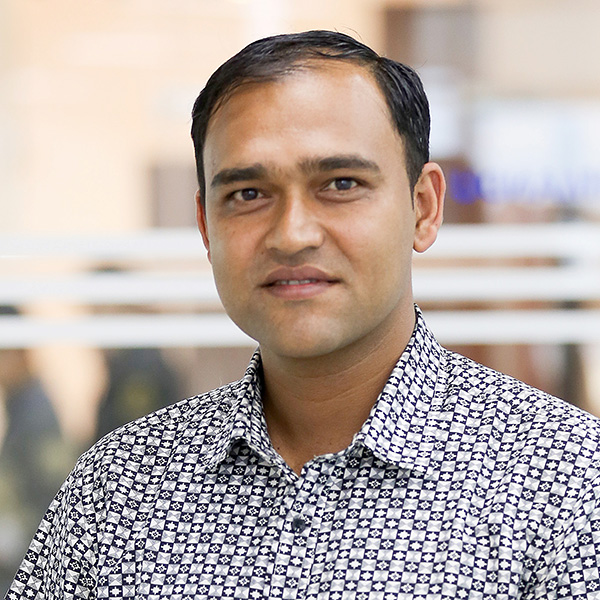Interviews
Ramesh Silwal: Despite last-minute work, everything will go smoothly during the Games
The member secretary of the National Sports Council on why, despite plenty of preparation time, some of the sports facilities are still incomplete.
Prajwal Oli
Even as workers scramble to finish preparations for the 13th South Asian Games a day ahead of the opening ceremony, officials have said they will leave no stone unturned to make the event a mega spectacle.
For Ramesh Kumar Silwal, the member secretary of the National Sports Council, nothing is more important at the moment than to hold the Games on time and without any visible hiccups. The Post’s Prajwal Oli caught up with Silwal on Friday to discuss the expectations of the host nation, and why, despite plenty of preparation time, some of the infrastructure is still incomplete.
Are we ready to host the Games now?
Yes, now we are all set to go and the only task remaining is opening of the Games on Sunday.
But some of the sports facilities are still incomplete.
No, everything is in place. The construction of Dashrath Stadium is finished. The heating system swimming pool is in the last phase of completion and Pokhara Stadium, with 13,000 seating capacity, is ready. So there is no major work left regarding infrastructure.
The statements regarding heated swimming pool keep changing. What’s the truth?
As of Thursday, the construction work is over. But the floor and fences of the pool have not dried completely. That could create problems in future if we fill the water in the pool before it is entirely dry. We have already processed 35,000 litres of water, which has been tested at the laboratory. Half of the water will be transferred to the pool on Saturday and Nepali swimmers would be able to practice on Sunday. Editor’s Note: As of press time on Saturday, the water still hadn’t been transferred to the pool.
It has been nearly four years since Nepal shouldered the responsibility to host 13th South Asian Games. We’ve had sufficient time to complete the infrastructure works for the Games. So why are we still doing last-minute work?
I’ve said time and again that we should have started the preparation once we took the flag as hosts in 2016. Those who came to the leadership after India Games should have thought about that. The Games would not have postponed had the leadership at the time thought about the Games. It has only been four months since I came to the leadership position and despite my hard effort, all the work related to the Games have not been
completed.
As per the international norms, all infrastructure must be ready at least three to six months before the Games kick off. Japan have recently announced that they have completed all the infrastructure of the 2020 Tokyo Olympics. We should also have finished infrastructure at least a few months before kick-off. But it’s not that I did not do my duty; the problem came after the person responsible before my arrival did not take their job seriously.
What’s been the reaction of visiting teams when it comes to our sporting infrastructure?
They have given a positive response. I was at the Dashrath Stadium premises till late on Thursday night. Around 50 to 60 foreign delegates were enjoying the new stadium. They said it was fantastic. Volleyball has already kicked off and they haven’t had any complaints. I don’t expect a negative reaction in the upcoming days because the technical teams have been monitoring all the venues.
What does the management part of the Games look like?
We have made sound management for the Games. There are four-five areas of our major concern—hospitality, hotel management, transportation, security, sports venue preparation and organisation. There are also some technical issues, including medical and disaster management. But we have completed all the preparations.
How is the preparation of the national team?
Our preparation is result oriented. We took 21 different games for training abroad with qualified coaches. We tried to give them more international exposure and quality training. We are very much hopeful that good training and exposure will be helpful in getting us results. We have also discussed with the respective sports associations’ president, general secretary and chief coach to formulate plans and have implemented them. So I don’t think there is any problem in our preparations.
It’s still unclear how many games we are participating in and the number of medals the event will have. When will the final figures be published?
This is the problem of the entire South Asian region. Most of the countries did not register for the Games by the deadline we set. We extended our previous deadline and set November 20 as the last date for by name registration. Even until November 26, all the countries have not registered. We now have completed the registration process. The event will have 317 golds in total after paragliding was scrapped. I don’t remember the exact number of players, but I believe there will be more than 3,000 players.
What are your expectations from the Games regarding Nepal’s medal prospects?
We have set the target of winning around 50 gold medals. Eight of them were from paragliding, but the event was scrapped due to insufficient registrations from other countries. But that hasn’t changed our target. We are hopeful of winning 30 to 40 medals from events like taekwondo, karate, wushu, judo, weightlifting and wrestling. Our expectations are based on the training and international exposure.
As we are also marking Visit Nepal 2020 beginning next month, are there any plans to connect the Games with Visit Nepal?
The event will be broadcast live globally and we are expecting the event to reach over two billion people. The opening ceremony will feature our ancient arts and cultures and around 6,000 visiting delegates will witness our culture directly, and hopefully take home a positive message about our country.




 9.6°C Kathmandu
9.6°C Kathmandu












